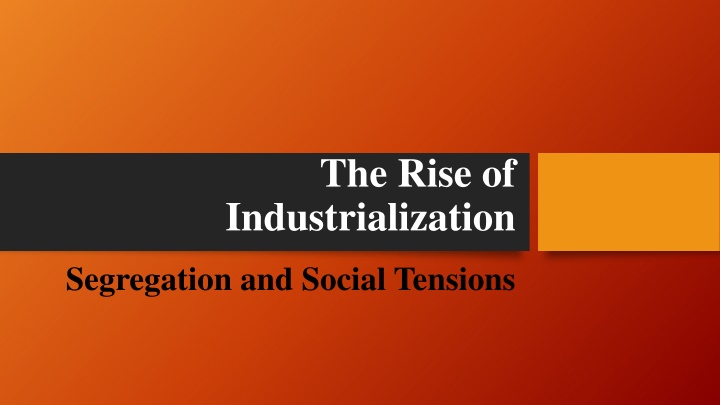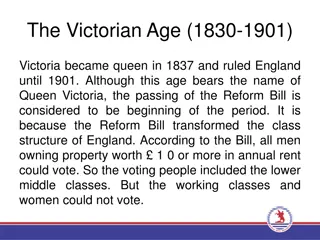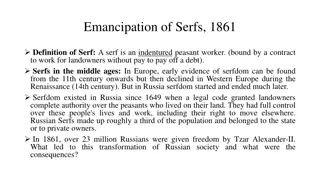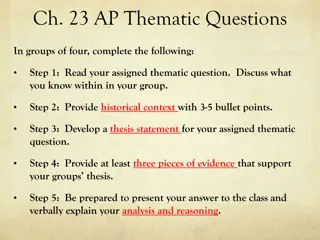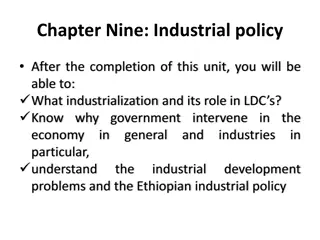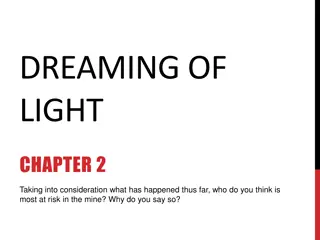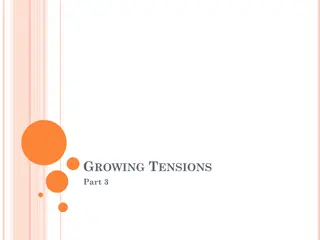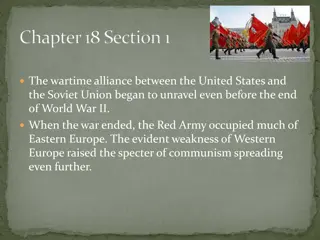The Rise of Industrialization and Social Tensions
The Rise of Industrialization led to segregation and social tensions in the United States. The Compromise of 1877 marked a significant turning point in history, impacting voting rights and the enforcement of discriminatory laws like the Jim Crow Laws. Limiting Voting Rights through tactics such as poll taxes, literacy tests, and grandfather clauses marginalized African Americans, resulting in decreased political participation. This period exemplified the challenges faced during the post-Reconstruction era in America.
Download Presentation

Please find below an Image/Link to download the presentation.
The content on the website is provided AS IS for your information and personal use only. It may not be sold, licensed, or shared on other websites without obtaining consent from the author.If you encounter any issues during the download, it is possible that the publisher has removed the file from their server.
You are allowed to download the files provided on this website for personal or commercial use, subject to the condition that they are used lawfully. All files are the property of their respective owners.
The content on the website is provided AS IS for your information and personal use only. It may not be sold, licensed, or shared on other websites without obtaining consent from the author.
E N D
Presentation Transcript
The Rise of Industrialization Segregation and Social Tensions
The Compromise of 1877 Election of 1876 pitted Republican Rutherford B. Hayes against Democrat Samuel Tilden On election day, Tilden appeared to win, however Republicans claimed black voters in Louisiana, Florida, and South Carolina blocked from voting
The Compromise of 1877 Louisiana, Florida, and South Carolina last three southern states with Reconstruction Republican governments still in place Compromise was reached where Democrat members of Congress would not block Hayes election in exchange for removal of Union troops from the south and an end to Reconstruction Resulted in southern control over African Americans without concern of federal intervention
Jim Crow Laws Southern governments enacted measures aimed at disenfranchising (taking away the right to vote) and enacted Jim Crow Laws Stated that whites and blacks in the south must be kept segregated or apart from one another
Limiting Voting Rights 15thAmendment prevented state governments from denying people the right to vote based on race, color, or previous condition of servitude After Reconstruction, States passed a number of restrictive measures to get around the 15th Amendment
Limiting Voting Rights States enacted a poll tax (required voters to pay a tax to vote) African Americans could scarcely afford to pay Required voters to pass literacy tests (testing if a voter could read)
Limiting Voting Rights Enacted grandfather clauses (allowed a person to vote as long as his ancestors had voted prior to 1866) Ancestors of freed African Americans could not vote, eliminating them from voting Many white Americans resorted to violence to ensure African Americans did not participate in voting African American participation in politics fell dramatically By 1940 only 3 percent of Blacks in South could vote
Forcing Segregation Jim Crow became a way of life in the South All aspects of life in the South became segregated as a result of Jim Crow Laws In the North, blacks found de facto segregation- non-legal segregation of places to work and live
Plessy v. Ferguson (1896) Supreme Court ruled that Jim Crow laws of separate but equal was constitutional In reality, separate facilities were rarely equal
African Americans Oppose Injustice African Americans refused to accept their role as second-class citizens Established organizations to fight and secure their freedom Although some of those organizations disagreed on methods, they all agreed to never turn back
Booker T. Washington The most famous black leader of the late 19thcentury Argued African Americans should not focus on overturning Jim Crow laws, but should build up economic resources and establishing their reputations as honest, hardworking citizens
Booker T. Washington Poured his energies into the Tuskegee Institute in Macon County, Alabama School known for providing industrial education to African Americans Argued such education would prepare African Americans for citizenship
W.E.B. Du Bois Criticized Washington s willingness to accommodate southern whites Argued blacks should demand full and immediate equality and not limit themselves to vocational education Did not feel that voting was a privilege that blacks needed to earn
Lynching Many southern whites used lynching (using violence to spread fear among blacks) to dissuade African Americans from voting, demanding rights, etc. Lynching victims usually displayed publicly to strike fear among other African Americans
Benjamin Singleton and the Exodusters African American businessmen from Tennessee Helped organize a group of African Americans (the Exodusters) who moved to Kansas and Oklahoma to take advantage of the Homestead Act Planted crops and founded several enduring all-black towns
